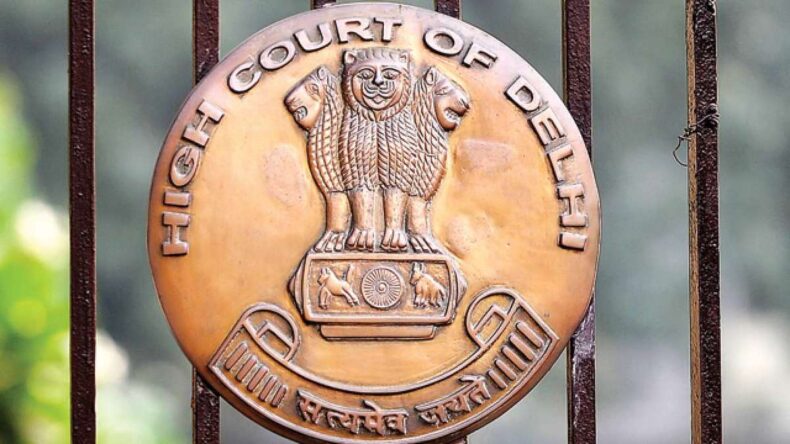Following a batch of petitions on the criminalization of marital rape, a bench of justices asked the Court why such discrimination against married women
The dispensation of marital rape from Section 375 of the Indian Penal Code has been a topic of controversy for years. The latest petitions before the division bench of Justice Rajiv Shakdher and Justice C. Hari Shankar states that
The exemption disregards several rights like the Right to Equality before the Law (Article 14) and the Right to Life and Personal Liberty (Article 21) within India’s Constitution.
The petitions, filed by RIT Foundation, two NGOs and AIDWA (All India Democratic Women’s Association) and two other individuals, is represented by Advocate Karuna Nandy.
Exception 2 of Section 375 of the IPC
Section 375 states rape as
“sexual intercourse with a woman against her will, without her consent, by coercion, misrepresentation or fraud or at a time when she has been intoxicated or duped or is of unsound mental health and in any case, if she is under 18 years of age.”
However, a part of it creates “an exception to the offence of rape in cases of forced sexual intercourse by a man with his wife if she is of 15 years of age or above.” In 2017, the Supreme Court changed the age of consent to 18 for a married woman.
RIT Foundation v. Union of India
Justice Rajiv Shakdher, representing the petitioners, posed the question on Wednesday, January 12, if courts should back off and refuse to take action in a situation where an issue like marital rape is disputed before them.
Justice C. Hari Shankar argued,
“The point is should we step back every time this comes up, and say no. Take the example of Section 377 (Criminalization of same-sex marriage); this Court decriminalized it. The Supreme Court reversed the decision. But these matters will stay with you, and they will come back.
The Supreme Court did revisit it. The Parliament had all the opportunity between the Delhi High Court judgement and the first round to the Supreme Court to correct it. They chose not to.”

Argument on Marital rape
Justice Shakdher said,
“Section 375 criminalizes rape. This exception is a firewall.”
He argued that the point is whether it is valid under constitutional scrutiny of Articles 14 and 21. He questioned the Court whether the other 50 nations had got it wrong.
Justice Shakdher expressed, “We can’t look away. We have the Constitution to consider. We may be right; we may be wrong. If we are wrong, we will correct.”
Advocate Raghav Awasthi, who also represents the petitioners, mentioned that in India, for ages, women have been seen as the “property” of men but that it is at odds with the Constitution of India. He noted a 2014 judgement of the Philippines Supreme Court that charged marital rape as a criminal offence.
Senior Advocate Rajshekhar Rao, also an Amicus Curiae, submitted that rape dehumanizes existence. He remarked,
“Every day that this Act remains on the books, there is a section of the population denied the ability to call a rape a rape. No amount of telling a woman that she can prosecute the husband under ten other provisions of law can undo the indignity that she faces because she violated by the person who is supposed to be her companion, her husband.”
“The silver lining is, a woman is better off, as a matter of law when a stranger assaults her. But when her loved one assaults her, the law says she is not entitled to call that act rape,” he addressed the bench. He also noted that a person in a position of trust who violates it deserves harsher punishment under the IPC Section 376.
He added, “There is no question of saying that such an act should not be punished. We are concerned with whether this Act should be punished as rape, whether this should be made rape. It is not that the legislature says that this Act should not be criminally punished.
The legislature has made the Act criminally punishable under various statutes, but it has decided that this Act should not be treated as a rape.”
What the courts have said on Marital rape
The intervenors opposing the petition, Advocate Raj Kapoor and Ritwik Bisaria, a member of Men Welfare Trust, argued that removing the exception would place the husband in a “worse position” when sentencing.
They also maintained that married women have ample protection at their disposal under various other laws and that the exemption does not take away their right to say no. They insisted that India not adopt the western concept to “strike down a statutory provision followed in the country.”
The petitioners maintained that the indemnity for marital rape under Section 375 of the IPC contravenes the Constitution-given rights to women of personal and sexual autonomy, self-expression and dignity.
Justice Shankar further emphasized that rape was punishable with ten years imprisonment, and the matter of removal of marital rape exception needed “serious consideration”. The Court also assigned Senior Advocate Rebecca John to assist in the case.
On Thursday, January 13, the Central Government announced that it is considering a “constructive approach”. It has called the Chief Ministers of all states and the Chief Justice of India for suggestions concerning the amendment of the criminal laws.
Edited by – Mahi Gupta
Published by – Satheesh Kumar












